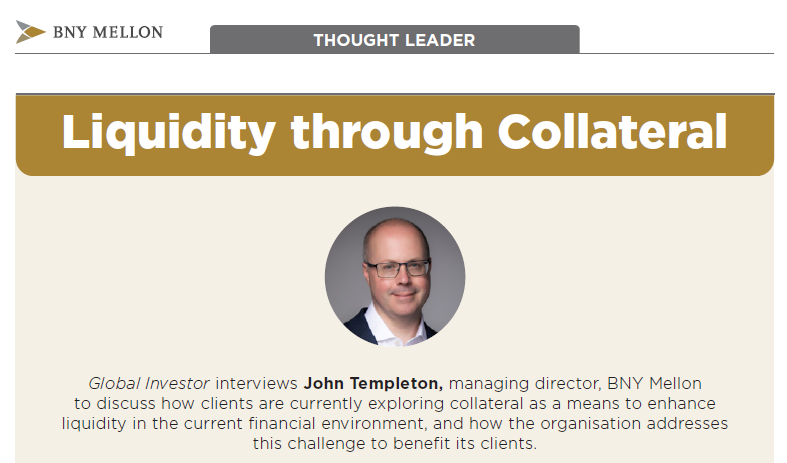Breteau reflects on 18 months running TP ICAP

When Nicolas Breteau became chief executive of TP ICAP in July 2018, he was faced with immediate challenges. The circumstances of his predecessor’s departure had spooked investors, who were forced to watch as their shares crashed by over a third, while the sudden change of leadership raised questions over the firm’s future direction.
Some 18 months on from the transition however, Breteau and his new management team have dealt with these issues and are forging ahead with a strategy to position the London-based broker for stronger growth in a changing market place.
Speaking to Global Investor, Breteau said his firm is now in a better place than it was in mid-2018: “TP ICAP was in a difficult position when I became CEO. My first priority was to stabilise the ship and that has been done.
“We have re-based the integration, with cost savings changed to £75m, and we are on track to achieve these cost savings and deliver the integration on time.”
Breteau was quick to refresh the management team, appointing long-term ally John Ruskin as head of TP ICAP’s institutional services in September 2018. Ruskin was followed by Martin Ryan from the LSE, Mike du Plessis, formerly of UBS, Michel Planquart from Citigroup, Amir Zaidi from the CFTC, Joanna Nader from RBC, Dawn Newsome from Nomura, Dan Wray from RBS, Andrew Chen from Arrow Global and Al Alevizakos from HSBC.
The chief executive continued: “We have also introduced a new global risk framework and ensured we are ready for any Brexit eventuality. These are the foundations that will allow us to build a sustainable and profitable business for the future. And at the same time, the business has navigated some difficult market conditions and performed creditably.”
The market is already recognising the progress made at TP ICAP via its share price, which rose from £2.70 when Breteau arrived to hit a high of £4.20 at the end of 2019.
Of course, the inter-dealer broker market is changing, due to regulatory reforms and changing client preferences, and it is Breteau’s job to ensure his firm is adapting to these changes.
He said: “Markets are more varied and clients are looking for new ways to access products and services. High touch broking still has a significant role to play and we expect that to be the case for quite some time. However, I do think there will be an acceleration in the electronification of broking.”
“Execution is very rarely just voice, we see it mainly in a hybrid form (broker and platform) or pure electronic with the choice of execution methods increasing and evolving to suit the product being traded. There will be more electronification and better STP.”
Breteau has a three pronged strategy: the further electronification of services to enhance the firm’s broking capabilities and meet clients’ evolving needs; the aggregation of liquidity across brands and products to offer clients the best pricing and simpler workflows; and a diversification of the business through, amongst other initiatives, its Energy & Commodities and Data & Analytics businesses, both of which saw significant growth in 2019.
Breteau has also identified post-trade as a key opportunity and bought in September 2019 ClearCompress, a derivatives compression firm.
And the firm is also looking to expand its geographic coverage: “We believe we can grow in all three regions where we currently are: Europe, the Americas and APAC. But given the demographics and the amount of capital being deployed into Asia, we do see good potential for growth there.”
TP ICAP entered in August a joint venture with Shanghai-based Enmore Investment Group to establish a Chinese commodities broker.
London-based Breteau added: “Europe will remain interesting next year as we await to see how Brexit pans out and how and where our clients decide to trade post-Brexit.” At the tail end of 2019, TP ICAP unveiled plans to redomicile its holding company from London to Jersey to provide the company with greater financial flexibility.
Looking ahead, the chief executive said the IDB market, which is dominated by TP ICAP, BGC Partners and Tradition, is unlikely to contract further but there may be opportunities for the big three to buy smaller firms – with TP ICAP underlining this by announcing it had bought Louis Capital Markets at the end of last year.
“I don’t see any further consolidation amongst the big three. Regulation is one of the biggest challenges the IDB sector faces. The regulatory agenda has tightened and IDBs need to react to that.”
The chief executive said he has invested heavily in compliance and training because he sees “this as an opportunity to differentiate ourselves from our competitors”.
Breteau said: “But this is not just driven by the regulators - we believe our clients want to deal with a financial intermediary that has first class compliance procedures. We have already seen significant change in the culture of TP ICAP and that will only continue.”
He concluded: “I expect the regulatory focus will make it difficult for some of the smaller brokerages to meet those requirements so we may see them disappear or sell to bigger players.”
Found this useful?
Take a complimentary trial of the FOW Marketing Intelligence Platform – the comprehensive source of news and analysis across the buy- and sell- side.
Gain access to:
- A single source of in-depth news, insight and analysis across Asset Management, Securities Finance, Custody, Fund Services and Derivatives
- Our interactive database, optimized to enable you to summarise data and build graphs outlining market activity
- Exclusive whitepapers, supplements and industry analysis curated and published by Futures & Options World
- Breaking news, daily and weekly alerts on the markets most relevant to you



